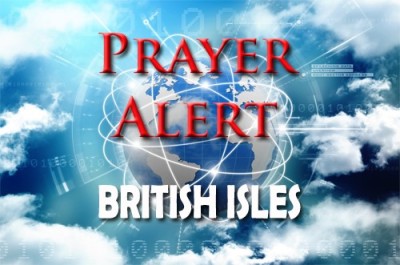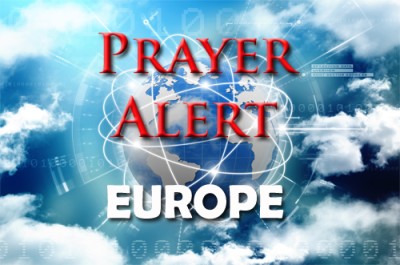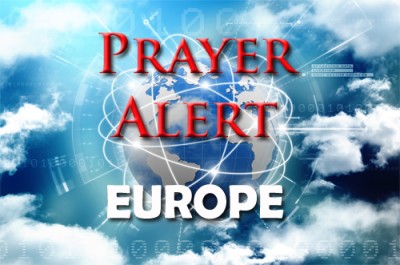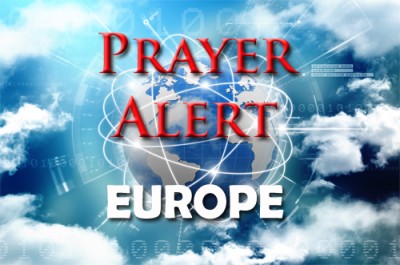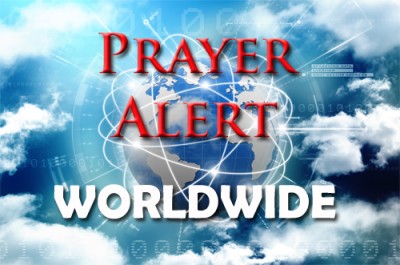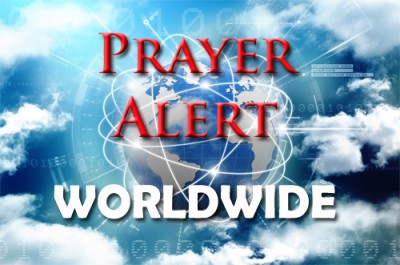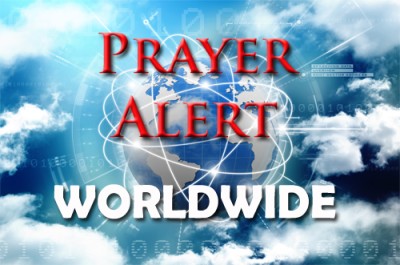The Bishop of Bristol, Rt Revd Vivienne Faull, has declined to grant Permission to Officiate (PTO) to retired priest Revd Sue Parfitt, who is facing trial for criminal damage after a climate protest. PTO allows retired or non-stipendiary clergy to perform ministerial duties such as leading services, preaching, and conducting weddings or funerals. Parfitt, 82, is accused of damaging the glass protecting the Magna Carta at the British Library during a May 2024 protest. She and a fellow activist broke the glass and glued themselves to the display, holding a sign accusing the government of breaking the law. Parfitt said that while the Bishop’s decision is painful, her greater priority is raising awareness about the climate crisis. The Diocese of Bristol said that while it supports environmental action, it emphasises the need for peaceful and lawful methods of protest.
Central Europe has been severely affected by Storm Boris, bringing heavy rain and snow and causing flooding across Poland, the Czech Republic, Romania, and Austria, with at least 24 reported deaths. In Poland, the town of Nysa has seen the evacuation of 40,000 residents, and other towns face severe damage after rivers overflowed. A state of natural disaster has been declared, with Wroclaw expecting more flooding. Meanwhile, rivers like the Oder and Danube are rising, with Slovakia, Hungary, and Croatia also preparing for potential floods. Emergency services, aided by the military, are working tirelessly across the region to protect communities. On 19 September, Storm Boris reached northern Italy, with similar reports of devastation: see Extreme rainfall is becoming more frequent and intense across central Europe, as across much of the world.
Portugal: firefighters die battling wildfires
20 Sep 2024To date, seven Portuguese firefighters have died while battling over fifty wildfires ravaging the country’s central and northern regions. Portugal has mobilised around 5,300 firefighters and has also called for EU help. The fires have forced the closure of major motorways and disrupted train services in the north. Though authorities describe the situation as ‘calmer but still worrying’, many villages remain under threat. The hardest-hit area, Aveiro district, has lost dozens of homes, with four deaths reported. The fires, which have already burned through more than 10,000 hectares (24,710 acres) of forest and shrubland, could engulf a further 20,000 hectares. Portugal and Spain have so far recorded fewer fires than usual this year, but both remain vulnerable to the increasingly hot and dry conditions caused by global warming.
Dominique Pélicot, 71, has admitted in court to repeatedly drugging and facilitating the rape of his wife Gisèle for nearly a decade. In a case that has shaken France, he confessed his role in the assaults, which involved fifty men who are also on trial. His wife, who divorced him following his arrest in 2020, has become a symbol of resilience for rape survivors in France for being willing to waive her anonymity in the case, and to appear openly in front of the media. Pélicot's confession is pivotal for the trial’s outcome, as many co-defendants claim they were unaware or manipulated into participating. He has said that childhood sexual abuse and family trauma led him down this path, and expressed regret for his actions. In contrast, Gisèle told the court she felt utterly betrayed after fifty years of marriage. The trial has drawn public attention to the horrors of domestic sexual violence and the importance of justice for victims.
A series of explosions rocked southern Lebanon on 18 September, as hand-held radios used by Hezbollah were remotely detonated, marking the deadliest day since cross-border fighting with Israel began nearly a year ago. The explosions killed at least twenty people and injured over 450. On the previous day many Hezbollah pagers exploded, killing twelve and injuring many more. Israeli officials have not confirmed involvement, though security sources link the attacks to Mossad. Hezbollah called it the worst security breach in its history. These events are fuelling fears of a wider Middle East war which could drag in the United States and Iran: a full-scale war could devastate Lebanon. Both sides have engaged in fighting along the border since the Gaza conflict erupted in October 2023. Hezbollah has vowed further retaliation, and tensions remain high. BREAKING NEWS: Israel launched a series of air strikes on southern Lebanon on 19 September, while Hezbollah’s leader Hassan Nasrallah said that this week’s incidents ‘could be called a declaration of war’. See
Both Joe Biden and Kamala Harris have spoken briefly to Donald Trump, following a second apparent assassination attempt against him on 15 September. Harris expressed relief over Trump’s safety, while Biden focussed on safety and protection measures. Speaking later, Harris reiterated her stance against political violence, emphasising the importance of democracy and peaceful discourse. While Trump was playing on a Florida golf course, Secret Service agents spotted a man armed with an AK-style rifle near the perimeter. The suspect, Ryan Wesley Routh, had reportedly lain in wait for twelve hours. He fled from the scene, but was later arrested after a car chase. Trump’s immediate reaction was to blame Biden and Harris for inciting violence against him through their rhetoric.
Philippines / China: standoff in South China Sea
20 Sep 2024After a five-month standoff with China over Sabina Shoal in the South China Sea, the Philippines have had to withdraw a coastguard vessel from the area because of bad weather, crew health issues and damage due to a collision with a Chinese vessel in August. Some commentators have warned that China could seize control of the shoal, repeating an incident in 2012 at Scarborough Shoal, but not everyone agrees. Manila insists it hasn’t abandoned Sabina, which is vital for resupplying troops at Second Thomas Shoal. Analysts have urged the Philippines to maintain a consistent presence, given its limited patrol capacity. Though tensions remain high, both nations are working to de-escalate the situation. The Philippines have said they are planning to send a replacement vessel, but have not given details.
President Daniel Noboa has proposed changing Ecuador’s constitution to allow foreign military bases, a move aimed at combating transnational crime and drug trafficking. He argues that Ecuador needs international military assistance to address escalating gang violence. This proposal comes fifteen years after former president Rafael Correa banned foreign military bases, ending the US presence in the country. It would have to pass through the constitutional court, the national assembly, and a public referendum. Noboa, facing declining approval ratings due to ongoing violence, hopes this reform will bolster his security policies ahead of his 2025 re-election campaign. Gang-related violence has surged in Ecuador's port cities, with murder and kidnapping rates skyrocketing.
